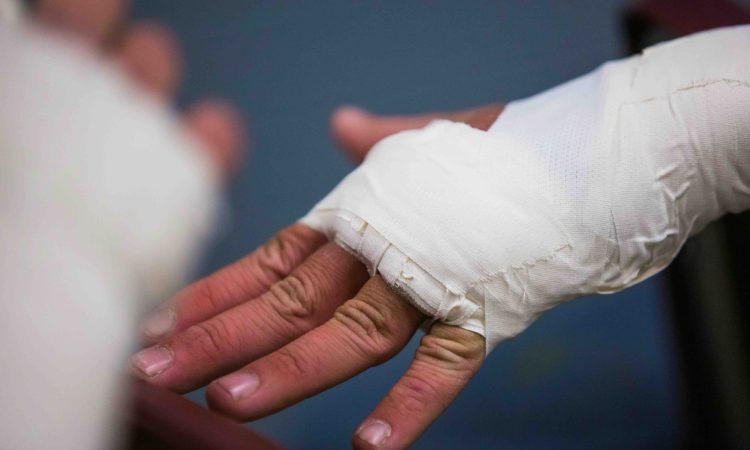
Expert Reports in Personal Injury Claims: Why Expert Opinions Carry Weight and How They Are Assessed
Expert reports are a cornerstone of personal injury litigation. They provide objective, professional assessments of the claimant’s injuries, their cause, and the impact on daily life. However, many claimants and sometimes defendants find expert opinions challenging especially when the report highlights factual discrepancies, pre-existing conditions, or degenerative changes.
At Hopkins Solicitors, we want to clarify why expert reports are treated with such respect in court and legal proceedings, why disputing them is not straightforward, and how these opinions influence your claim.
The Role of Expert Evidence in Personal Injury Claims
Medical evidence is essential to properly value any personal injury claim. Courts and insurers rely heavily on expert reports to assess the severity of injuries, the prognosis, and the impact on daily life and earning capacity. Without detailed medical evidence, it is impossible to fairly and accurately calculate compensation.
Under the Civil Procedure Rules (CPR), expert evidence must be independent, unbiased, and based on sufficient facts or data (see CPR Part 35). Courts rely heavily on expert reports because judges and juries generally do not have the medical knowledge to assess complex injuries on their own.
An expert’s opinion is not just a casual observation, but a professional assessment grounded in science, clinical experience, and the detailed review of medical records and diagnostic tests.
Medical Records Are Contemporaneous and Cannot Be Amended
Medical records are considered contemporaneous records, meaning they are created at or near the time of treatment or consultation. They provide an accurate, time-stamped account of a patient’s condition, symptoms, diagnosis, and treatment as they were at that moment.
Because of their importance as factual evidence, medical records cannot be amended or altered to suit a particular version of events or desired outcome. Any changes must be clearly documented as addendums or corrections with dates and reasons.
The integrity of medical records is critical because courts rely on them as truthful, objective evidence of a claimant’s medical history and condition. Attempts to alter or “fix” medical records can seriously undermine a claim’s credibility and may lead to legal consequences.
Medical records provide the factual foundation for expert reports. Experts rely heavily on full, accurate medical documentation, including GP records, hospital notes, imaging, and prior medical history.
Incomplete or inaccurate records can lead to misunderstandings or incorrect conclusions in expert reports, potentially weakening a claim.
Therefore, it is essential for claimants to disclose all relevant medical history honestly and comprehensively.
Correcting Factual Errors vs. Amending Expert Opinions
Sometimes, expert reports may contain factual errors such as incorrect dates, misspelled names, or inaccurate personal information about the claimant. In these cases, it is appropriate and routine to ask the expert to correct or amend the report to reflect the accurate facts.
However, there is a clear and important distinction between correcting factual inaccuracies and asking an expert to change their professional medical opinion. The latter is not permitted. Experts provide their opinion based on their independent assessment of the evidence and their clinical expertise. It would be unethical and against the rules for an expert to amend their opinion simply because a party disagrees with it.
The courts respect this principle strongly. Attempts to pressure experts to alter their opinions without new medical evidence or a sound basis can damage a party’s credibility and may lead to costs sanctions.
Why We Cannot Simply Dispute Expert Opinions on Factual Discrepancies
Often, experts identify factual discrepancies, for example, when a claimant’s reported symptoms do not fully align with clinical findings or diagnostic imaging. Such discrepancies are not attempts to undermine the claimant’s credibility but objective conclusions from medical data.
Disputing an expert’s factual findings requires more than just disagreement. The court gives significant deference to expert evidence unless it can be clearly demonstrated to be flawed or biased.
Challenging an expert’s opinion means obtaining a competing expert report that clearly and professionally disputes the findings or identifying procedural or evidential flaws in the expert’s methodology.
Simply asserting that the claimant’s evidence is correct without medical support will not overturn a well-reasoned expert opinion.
Pre-Existing Conditions and Their Legal and Medical Significance
Pre-existing conditions refer to medical issues or injuries that existed before the accident or event giving rise to the claim. Examples include prior back pain, arthritis, previous injuries, or chronic illnesses.
Experts must carefully assess the claimant’s medical history to determine the extent to which the current symptoms are due to the accident versus earlier conditions. This assessment is critical because:
- Causation and Liability:
Legally, the claimant must prove that the accident caused or materially aggravated their injury. Pre-existing conditions can complicate this but do not automatically exclude liability if the accident worsened the claimant’s condition (Barnett v Chelsea & Kensington Hospital [1969] 1 QB 428).
- Impact on Prognosis:
The presence of pre-existing conditions can affect the prognosis, the likely course and outcome of the injury. For example, someone with degenerative disc disease may have a slower recovery or be more prone to long-term symptoms after an accident.
- Assessment of Damages:
Compensation typically reflects the additional injury or worsening caused by the accident, not symptoms from pre-existing conditions alone. This avoids “double recovery” and ensures fairness.
Experts explain these nuances clearly, distinguishing between what symptoms are new or aggravated and what stems from prior issues.
Understanding Degenerative Change and What It Means for Claims
Degenerative change describes the gradual wear and tear of the body’s tissues, such as cartilage, discs, joints, and bones, usually associated with ageing or long-term strain.
Common examples include osteoarthritis, degenerative disc disease, and joint space narrowing seen on X-rays or MRI scans. Many adults, especially those over 40 or with physically demanding jobs, will have some degree of degenerative change even without injury.
Why Degenerative Changes Matter
- Prevalence and Natural Process:
Degenerative changes are normal and expected with age, and their presence on scans does not necessarily mean a claimant is suffering from pain or disability.
- Relation to Accident and Symptoms:
An accident may trigger symptoms in areas with pre-existing degeneration, or it may exacerbate the degenerative process. Experts must assess whether symptoms are caused or worsened by the accident or whether they are coincidental.
- Impact on Prognosis:
Degenerative changes often mean recovery may be slower or incomplete. Some symptoms may persist indefinitely due to underlying degeneration, rather than the accident alone.
- Legal Impact:
Courts recognise that claimants with degenerative changes are not barred from compensation but must be compensated only for the injury caused or worsened by the accident. This principle was emphasised in Wells v Wells [1998] UKHL 27, where the House of Lords acknowledged the interplay between pre-existing conditions and accident-related injury.
Why Experts Are Not Trying to Trick Anyone
Medical experts are regulated professionals bound by ethical duties to provide honest, unbiased opinions. Their reports must comply with the Civil Procedure Rules Part 35, which requires experts to help the court impartially.
Expert witnesses must not act as advocates for either party but must assist the court by providing independent analysis.
Claimants and defendants should view expert reports as a neutral assessment rather than an adversarial tool. Attempts to “discredit” experts without valid reasons can backfire, undermining the credibility of the party raising the challenge.
What Can Clients Do if They Disagree with an Expert Opinion?
It is not uncommon for clients to feel frustrated or concerned if an expert report does not fully support their version of events or their claim. While expert opinions carry significant weight, clients do have some options if they disagree:
Obtaining a Second Expert Report
Clients may instruct their own expert to review the case and provide a second opinion. This can be useful to challenge aspects of the original report or provide a different perspective on the injuries or causation.
However, it is important to understand the following practical and legal points:
- Costs Are Usually at the Client’s Expense:
The cost of obtaining a second expert report is normally payable by the client. It is rare for the court or defendant to order costs for multiple expert reports unless there is a clear reason for doing so.
- No Guarantee of a Different Opinion:
A second expert may reach the same or very similar conclusions as the original expert, especially if the medical evidence is clear. In this case, the second report may not add value but will still incur costs.
- Risk of Increased Costs and Delays:
Introducing competing expert evidence can prolong proceedings and increase overall legal expenses.
- Legal Costs Recovery Limitations:
Even if a second expert report is obtained, the client will generally not recover the costs of both reports from the defendant. The court aims to keep costs proportionate, and paying for multiple expert reports is seen as part of the client’s own risk.
Legal Principles on Expert Evidence and Disputing Opinions
The courts have repeatedly affirmed the high value placed on expert evidence. Some key points include:
- Expert evidence carries significant weight but is not infallible. The court may accept, reject, or partially accept expert opinions based on the evidence as a whole.
- Merely disagreeing with an expert report is insufficient. A strong competing expert report or clear evidence of error is needed.
- Experts must declare any conflicts and avoid becoming partisan advocates.
- Judges control which expert evidence is admitted, ensuring only reliable and relevant opinions influence outcomes (CPR Part 35).
Conclusion
At Hopkins Solicitors, we recognise that expert reports can feel daunting. Yet, they are essential tools that help courts understand complex medical issues fairly and objectively.
Understanding why expert opinions are treated with respect and why they cannot simply be disputed without solid evidence helps claimants set realistic expectations and prepare effectively for their claim.
If you have questions about expert reports, how to deal with them, or need expert advice on a personal injury claim, our experienced solicitors at Hopkins Solicitors are here to help.
Request a CallbackRelated Articles
-

The Importance of Financial Remedy Orders in Divorce
Divorce is tough, but what comes after can be even tougher if you don’t protect yourself financially. Many people think…
-

New Year, New Start (Leaving a Domestically Abusive Relationship)
For many, the New Year often signals a new start. Sometimes people decide it is time to leave a relationship…
-

Defendant Personal Injury Claims: A Detailed Guide on the Process, Costs, PAD Applications, and How to Protect Your Business
At Hopkins Solicitors, our Personal Injury team frequently advises businesses, organisations, and individuals who are facing claims made against them….